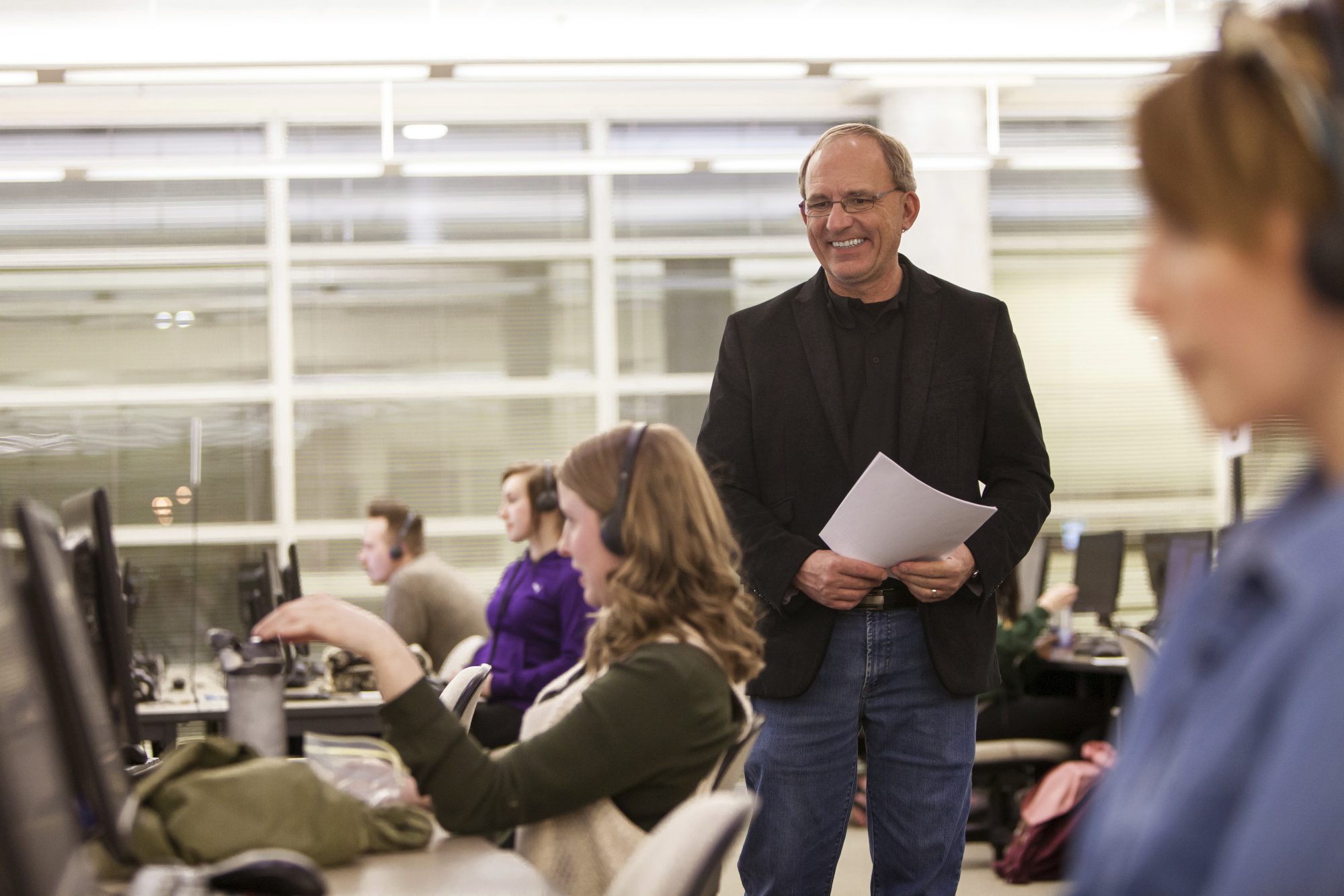The Lethbridge College Citizen Society Research Lab added online data collection to its tools for measuring public opinion, opening the door to potentially new opportunities for student researchers and community partners.
Research Chair Dr. Faron Ellis says the lab’s long-standing partnership with the Lethbridge Police Service added a new dimension this year, with an online survey of stakeholders.
The lab first conducted a general population survey by phone for the police service more than a decade ago. The questions focused on performance evaluation and safety. This year, the service sought a way to expand its engagement efforts.
“The ability to authentically engage stakeholders and get the kind of meaningful feedback we need for planning has always been a challenge,” says Police Chief Rob Davis. “Dr. Ellis and the Citizen Society Research Lab have provided us with a cost-effective method to really zero in and get a better understanding of the needs, expectations and priorities of our community partners and the people we serve.
“This is by far the largest stakeholder consultation process in the service’s history and the feedback we receive will be used to help shape the direction and delivery of policing services.”

Ellis says the force expanded its general population survey, conducted by students in the research lab last month. Even with twice as many questions, the service wanted more information that couldn’t be accommodated in a phone call.
“Online, you can devote 50 questions and much more complex questions,” Ellis says. “It’s very difficult over the phone to have a rank-ordering question. You get to the third one and you’re explaining it and, especially if it’s detailed, they don’t remember what the first one was, let alone the second one. Then you try to go to a fourth. It’s just confusing.”
In the online survey, respondents ranked their top policing priorities from a detailed list. They distinguished how safe they feel in their neighbourhoods at night versus day. They were provided a map of patrol areas.
“(Online), you can show people a map. . . They can see it. It can’t be described by students on the phone.”
The research lab also significantly increased the number of people being consulted.
“We broadened the stakeholder list. . . to anybody that owns, operates or manages, in some way, a facility open to the public,” Ellis says. “That’s schools, that’s libraries, the arts facilities, but it’s also businesses.”
He reached out to umbrella organizations like the Lethbridge Chamber of Commerce, business revitalization zones, the home builders association and industrial association for help contacting one or more representatives. In city schools, for example, principals, vice-principals, counsellors and even security personnel were invited to take part.
The goal was to identify anyone who ran a public space, but also not-for-profits, community associations and helping industries, including Alberta Health Services.
The link to the online survey hit the inboxes of about 1,400 individuals, nearly a tenfold increase from the original stakeholder list. More than 450 people responded.
“The breadth of information and depth of information is probably unique,” Ellis says. “If you get 450 or 500 people completing your survey, that’s a pretty broad consultation.”
The police, like many public organizations, make stakeholder engagement a priority. Open houses, storyboarded information and table talks may not always be well attended or received. That’s not to suggest the public doesn’t care.
“They’re just busy people,” Ellis says.
One advantage of online surveys is people can respond at a time convenient to them.
Ellis can see potential for the Citizen Society Research Lab to connect with new community partners to create research opportunities for students — reflecting the lab mandate of student-first learning experience and work that serves community interests.
“Now that I’ve done it once and gone through it, managed it and know what I’m up against in managing the list. . . now we could do more.
“It fulfils our mandate and moves it forward.”
While the phone surveys can involve more than 200 students from a range of college programs, online surveys require fewer students but doing very concentrated work.
“The more we do of it, the more student involvement there can be. We could take it to another level.”
His work with the police is a good test.
“We haven’t done the analysis yet,” Ellis says. “We’ll see how receptive the police are to it, how much use it is to them, how integrated it becomes into their business planning.”
Ellis will provide the police service its report by the end of March.